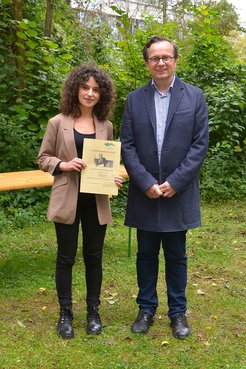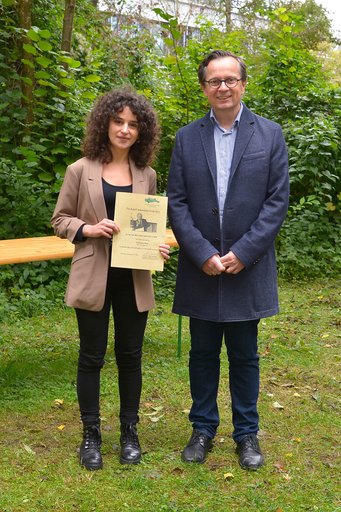Francesca Rizzo awarded with Kippenhahn Prize
This year’s Kippenhahn Prize goes to Francesca Rizzo for her paper on “A dynamically cold disk galaxy in the early Universe”. The Prize is awarded annually by the Max Planck Institute for Astrophysics for the best student paper that has been published in an established journal. Rizzo made most of the contribution to all aspects of the paper: code development, data analysis, and the interpretation and writing of the surprising results.

The study of the structural, kinematic and dynamical properties of galaxies at high redshift provides a key route to testing galaxy formation models. Current analytical and numerical models of galaxy evolution predict that high-redshift galaxies should have chaotic interstellar media with much higher turbulence levels than nearby systems.
With the paper “A dynamically cold disk galaxy in the early Universe”, Francesca Rizzo challenges these models. By combining the high-angular resolution of ALMA with her powerful three-dimensional lens modelling technique, Francesca studies the emission in the [CII] line with a resolution of 60 pc (about 200 light-years) for a dusty star-forming galaxy at redshift 4 (some 1.5 billion years after the Big Bang). This is unprecedented for a galaxy at this redshift.
Most interestingly, her analysis reveals a highly starforming but dynamically cold disk with an unexpectedly low turbulence level, in conflict with prior expectations. Francesca's work shows that galaxies at redshift 4 are much more similar to low-redshift disks than previously believed and indicates the need for a significant revision of our understanding of how galaxies form their discs.












